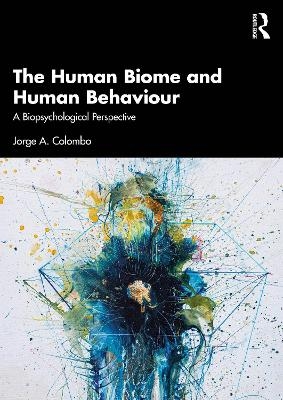
The Human Biome and Human Behaviour
Routledge (Verlag)
978-1-032-67851-1 (ISBN)
It describes trends and issues on which there is increasing evidence of the impact of host-gut microbiome interactions on behaviour and cultural construction of self-perception.
The book represents a critical update on interactions between the host and its gut microbiome that conditions the socio-biology of the mind and behaviour.
Evidence has been scientifically approached and reveals that our conscious behaviour involves a complex interplay of multiple non-conscious domains, including complex host-gut microbiome relationships.
The book describes trends and issues on which there is increasing evidence of the impact of host-gut microbiome interactions on behaviour and cultural construction of self-perception. This suggests the need to re-evaluate traditional, basic concepts of human development. Additionally, it calls attention to open issues involving conceptual themes on neurobiological integration and its impact on early developmental and social domains on the typical extended period of human postnatal helplessness during which the basic scaffolding of mental development is completed. It also deals with the impact of poverty and inadequate early feeding habits on individual cognitive development, performance, and social construction. It discusses the need to reformulate views and policies on social marginalisation, child poverty, and malnutrition involving host-gut microbiome imbalances.
The spectrum of possible behaviours in all species and its plasticity depends on an integrated vector of basic components involving the genetic code, social and physical environmental, developmental conditions, the relative condition of dominance or submission in social settings –or prey/predator in the Natural Kingdom– and on its physiological and anatomical construction profiles.
Graduate, postgraduate and teachers interested in areas connected with anthropology, social medicine, early education, and health policymakers will benefit greatly from this book.
Jorge A. Colombo, MD, PhD. is a former Full Professor at the University of South Florida (USA) and Principal Investigator at the National Research Council (CONICET, Argentina). He is also a former Fellow of several international organisations, including NIH, von Humboldt Foundation, DAAD, and British Royal Society.
Acknowledgement
Preliminary quotes on the hypothesis regarding the primaeval origin of bioorganic molecules, a basis for prebiotic evolution
Foreword
1 Evolutive Considerations
2 Possible Life Origin
The Primal, Highly Adaptive, Opportunistic Commensal Living
Partners
3 The Dynamic of Change from the Human Perspective
The Concept of Anthropocene
4 On the Holobiont and Hologenome
Preliminary Comments
Holobiont and Hologenome
5 Microbiota and Species Evolution
Human Microbiome
6 Host Microbiome and Evolution. Living with Commensal Bacteria
Host Microbiome Evolution
The Human Context. Microbiome Inoculum in Newborns. Host Diet
Evolutive, Comparative Considerations
Microbiota and Feeding Cultural Profiles
7 Brain-Gut Microbiome Interactions
8 The Microbiome and its Behavioural Impact
Systemic Impact
Microbiome Impact on Behaviour and Cognition
Neurocognitive and Social Behavioural impact
A Human Experiment in Spaceflight Conditions
9 Human Postnatal Growth and Critical Period
Conditions of Human Postnatal Growth
Birth Weight and Energy Reserves
Experimental Research on Brain Critical Period
Early Experience and Human Development
10 Gut Microbiome, Diet, Poverty, and Child Development
Poverty and Early Malnourishment Impact on Child Development
Microbiome and Brain/Mental Development
Early Malnutrition
11 Beyond Human Pride
12 Brain and Gut Microbiome: An Integrated View of Conditioning Developmental
Processes
The Feeble Notion of Freedom. Freedom in a Conditioning Cage
Concluding Remarks
Index
| Erscheinungsdatum | 25.07.2024 |
|---|---|
| Zusatzinfo | 3 Line drawings, black and white; 6 Halftones, black and white; 9 Illustrations, black and white |
| Verlagsort | London |
| Sprache | englisch |
| Maße | 174 x 246 mm |
| Gewicht | 371 g |
| Themenwelt | Geisteswissenschaften ► Psychologie ► Biopsychologie / Neurowissenschaften |
| Geisteswissenschaften ► Psychologie ► Verhaltenstherapie | |
| Naturwissenschaften ► Biologie ► Zoologie | |
| ISBN-10 | 1-032-67851-8 / 1032678518 |
| ISBN-13 | 978-1-032-67851-1 / 9781032678511 |
| Zustand | Neuware |
| Haben Sie eine Frage zum Produkt? |
aus dem Bereich


